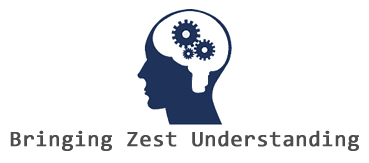The Impact of Social Media on Self-Esteem
Navigating the Digital Influence: The Impact of Social Media on Self-Esteem
Social media has become an integral part of modern life, offering a platform for connection, expression, and information sharing. However, as the use of social media continues to rise, concerns about its impact on mental well-being, particularly on self-esteem, have come to the forefront. This article explores the intricate relationship between social media and self-esteem, shedding light on both the positive and negative aspects of this digital influence.
Positive Aspects:
- Social Connection:
- Social media enables individuals to connect with friends, family, and communities worldwide, fostering a sense of belonging and support.
- Positive Affirmation:
- Sharing achievements and receiving positive feedback can boost self-esteem, providing validation and encouragement.
- Inspiration and Creativity:
- Exposure to diverse content on social media can inspire creativity and personal growth, encouraging individuals to pursue their passions.
- Educational Resources:
- Social media platforms offer educational content, empowering users to learn new skills, access information, and stay informed about various topics.
Negative Aspects:
- Social Comparison:
- The pervasive nature of social media often leads to social comparison, where individuals measure their lives against the carefully curated highlight reels of others, potentially leading to feelings of inadequacy.
- Body Image Concerns:
- The prevalence of edited images and beauty standards on social media can contribute to body image issues and a distorted perception of beauty.
- Cyberbullying:
- Social media platforms may become breeding grounds for cyberbullying, negatively impacting self-esteem and mental health.
- Fear of Missing Out (FOMO):
- Continuous exposure to the activities and experiences of others may contribute to a fear of missing out, fostering feelings of exclusion and inadequacy.
- Validation Seeking:
- Relying on social media for validation can lead to a dependency on external approval, impacting self-esteem when the expected validation is not received.
Navigating the Impact:
- Mindful Consumption:
- Encourage mindful consumption of social media by being aware of how content affects emotions and taking breaks when needed.
- Authenticity:
- Embrace authenticity by sharing genuine experiences rather than conforming to unrealistic standards, promoting a culture of openness.
- Digital Detox:
- Consider periodic digital detoxes to reduce the constant exposure to social media and prioritize real-world interactions.
- Positive Content Curating:
- Curate a positive social media feed by following accounts that inspire, educate, and uplift rather than perpetuating negative comparison.
- Self-Reflection:
- Cultivate self-awareness and resilience, recognizing that social media is a curated representation of reality and not a comprehensive depiction of others’ lives.
Conclusion:
The impact of social media on self-esteem is a complex interplay of positive and negative influences. While it provides avenues for connection, inspiration, and personal expression, the constant exposure to curated content can also contribute to self-esteem challenges. By fostering a culture of authenticity, mindful consumption, and positive content curation, individuals can navigate the digital landscape in a way that enhances well-being and promotes a healthy self-esteem. Striking a balance between the virtual and real worlds is crucial in harnessing the positive potential of social media while mitigating its potential negative impact on self-esteem.

